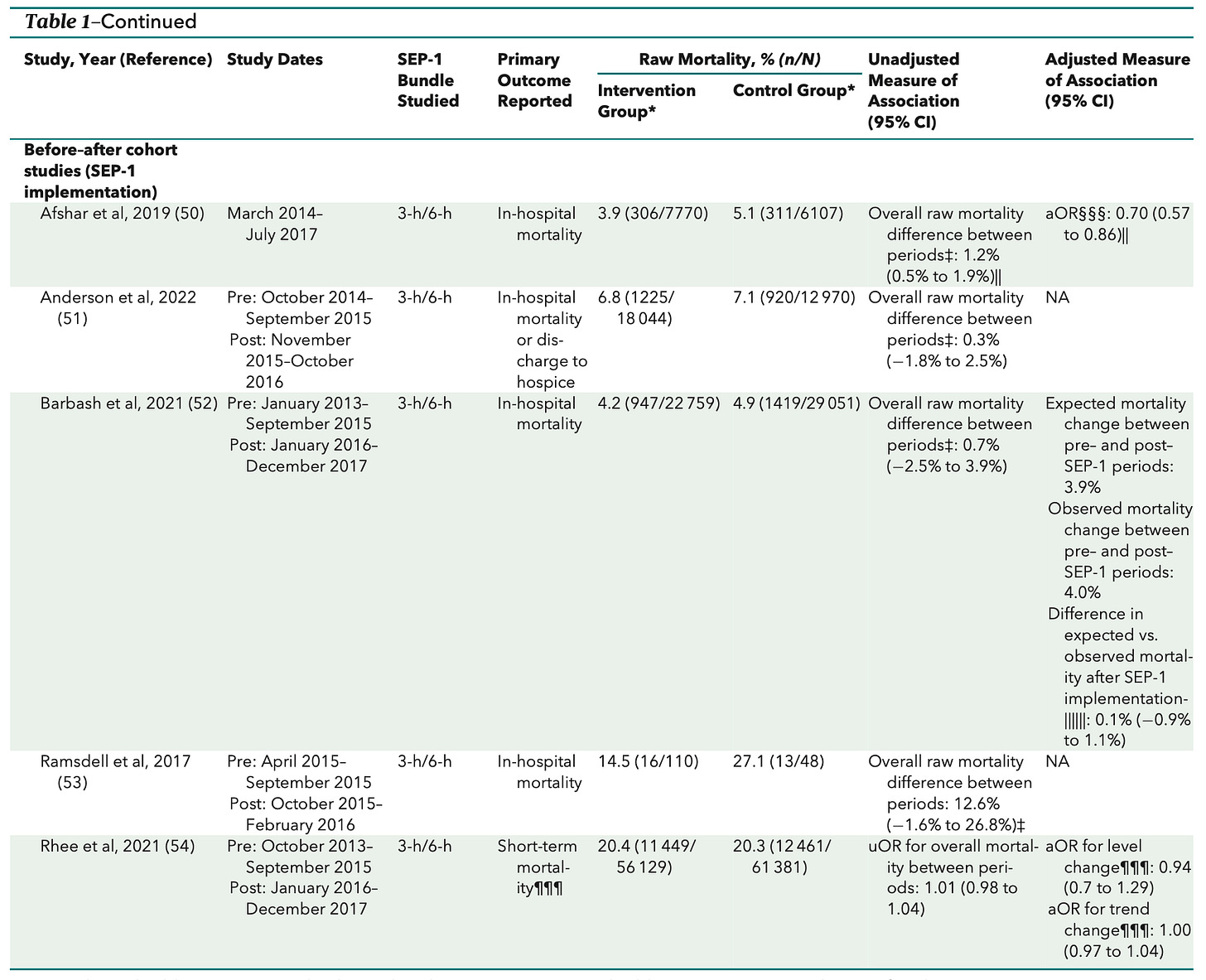The Loathsome SEP-1 is Law
The unwarranted flogging escalates with inclusion into value-based purchasing.
Sepsis is well-described as a substantial scourge of persons world-wide. True sepsis, both an infection and a disordered host response to same, benefits from early and effective treatment. However, the importance of timely and aggressive early treatment does not truly begin to separate itself until dysfunction becomes severe, e.g., septic shock.
There is broad consensus the current approach to sepsis – which is to say, SEP-1 – is flawed. In order to catch the few patients who benefit from aggressive early treatment, the net is cast so wide, and so fatuously, unnecessary and harmful treatment is inflicted on a wide patient population.
This *could* conceivably be warranted if there were good evidence compliance with SEP-1 generally conferred a measurable improvement in survival from sepsis. But, as these authors describe in their systematic review, there’s not:
Summing up tiny numbers in a big table, the authors identified 17 relevant studies for analysis – 6 of which showed benefit from bundle compliance and 11 that did not. No included studies rated as to be at low risk of bias.
Quality measures tied to financial incentives deserve more nuance and better evidence in support than we’re seeing here with SEP-1. Sepsis care has evolved over the past two decades to include appropriate levels of vigilance, source control, and appropriate follow-up investigations – mandating this unproven bundle and its penalties is unwarranted.


